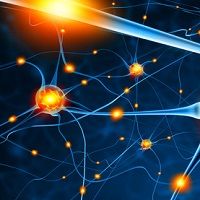Article
Why T-Cells Sometimes Turn Pathogenic
Author(s):
A signaling mechanism can turn T-cells into destroyers.

A recently found signal mechanism influences T-cells to become pathogenic, according to new study findings.
Researchers from the Technical University of Munich in Munich, Germany were curious about the effect that the cytokine interleukin-6 (IL-6) has on T cells, study author, Ari Waisman, PhD, explained to MD Magazine in an email. He and colleagues analyzed how the cytokine affects the T-cells by observing IL-6 secretion.
Previously, it was understood that T-cells become pathogenic when they encounter specific dendritic cells in the lymph nodes. These dendritic cells then (the reasoning went),would cause the T-cells to trigger immune reactions across the body. Normally, this process would be a beneficial reaction in the presence of foreign bodies like virus components or bacteria. But when the body attacks its own parts, such as the myelin sheath, as it does in multiple sclerosis, that reaction signifies autoimmune disease. The combination of attacking the myelin sheath and secreting the IL-6 cytokine causes the T-cells to become pathogenic and wreak havoc on the tissues.
But, importantly, the researchers explained, the T cells did not always become pathogenic in the presence of IL-6. Typically, there were two accepted ways that dendritic cells could communicate the IL- 6 to T-cells: either by secreting the cytokine into their surroundings, or through trans signaling, the process where an IL-6 receptor can create the response cells.
The new third way the T cells can turn pathogenic, the team discovered, is called cluster signaling. This newly discovered method concerns the formation of clusters of dendritic cells and T-cells, a press release explained, and happens almost simultaneously, unlike the other two methods. The researchers believe this method probably causes the T cell to become highly aggressive and efficient at attacking the target foreign bodies or antigen.
The most surprising finding the team learned, Waisman told MD Magazine, was that they noticed in mice models that dendritic cells cannot make IL-6, and mice where dendritic cells do not express the receptor for it have the same phenotype. That phenotype was a resistance to EAE.
“We then found that it stems from the same reason namely that dendritic cells need to ‘hand’ the cytokine to the T-cells on their own IL-6 receptor of the dendritic cells,” Waisman added.
The Nature Immunology article concludes that cluster signaling not only replaced classic IL-6 signaling but led to qualitatively different T-cell responses. IL-6 cluster signaling led to earlier and more robust expression of IL-23R, a cytokine receptor encoding gene, in antigen activated T cells compared to classic IL-6 signaling, the researchers said.
The authors stressed that IL-6 targeting strategies should be re-evaluated to include the different signaling types when considering the design of therapies in the future for autoimmunity, chronic inflammation and cancers.
The article is titled “Trans-presentation of IL-6 by dendritic cells is required for the priming of pathogenic TH17 cells.” The press release is here.
Related Coverage:
New Road Map for Treating Exhaustion in Multiple Sclerosis
Multiple Sclerosis: Better Ways to Test Diet Changes
Vitamin D Deficiency One Potential Controllable Risk Factor for Multiple Sclerosis Development




